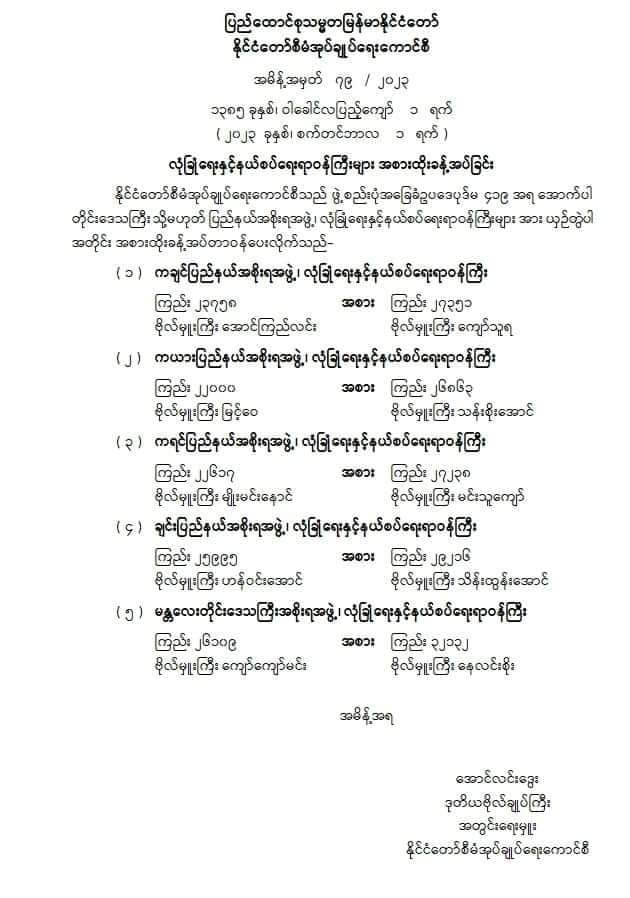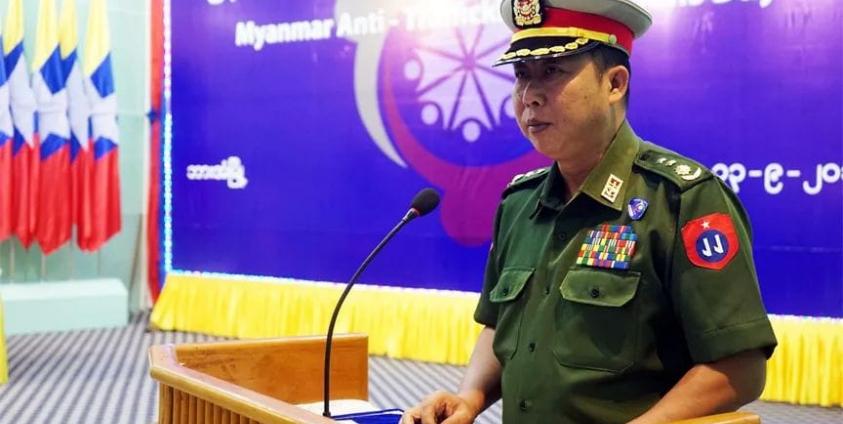Padoh Saw Kler Say, the spokesperson of KNU, predicted the war in the Kawthoolei areas within the territory of the Karen National Union (KNU), may become worse following the Junta’s replacements of Ministers of Security and Border Affairs in five states and regions, including Karen State.
According to an order issued by the Military Council on September 1, the Ministers of Security and Border Affairs in Kachin State, Kayah State, Karen State, Chin State, and Mandalay Region have all been replaced.
"Regardless of any potential changes in ministerial positions, our recent observations in the Kawthoolei region indicate the Military Council's intention to escalate the conflict and turn back the recent tide of resistance gains. The reshuffling of the Minister of Security and Border Affairs will not bring about any peace, and there is a possibility that the military situation will get even more intense," remarked KNU spokesperson Padoh Saw Kler Say.
The Junta has made the following changes:
 Colonel Kyaw Thura has replaced Colonel Aung Kyi Linn as the Minister of Security and Border of Kachin State, Colonel Than Soe Aung replaced Colonel Myint Wai as the Minister of Security and Border Affairs of Kayah (Karenni) State, Colonel Min Thu Kyaw replaced Colonel Myo Min Naung as the Minister of Security and Border Affairs of Karen State, Colonel Thein Tun Aung has replaced Colonel Han Win Aung as the Minister of Security and Border Affairs of Chin State, and Colonel Nay Lin Soe has replaced Colonel Kyaw Kyaw Min as the Minister of Security and Border Affairs of Mandalay Region.
Colonel Kyaw Thura has replaced Colonel Aung Kyi Linn as the Minister of Security and Border of Kachin State, Colonel Than Soe Aung replaced Colonel Myint Wai as the Minister of Security and Border Affairs of Kayah (Karenni) State, Colonel Min Thu Kyaw replaced Colonel Myo Min Naung as the Minister of Security and Border Affairs of Karen State, Colonel Thein Tun Aung has replaced Colonel Han Win Aung as the Minister of Security and Border Affairs of Chin State, and Colonel Nay Lin Soe has replaced Colonel Kyaw Kyaw Min as the Minister of Security and Border Affairs of Mandalay Region.
Padoh Saw Kler Say added that, considering the current status of the Military Council, these ministerial changes could either be a routine procedural change, or a replacement aimed at streamlining operations for convenience.
U Aung San Myint, Secretary-2 of the Karenni National Progressive Party (KNPP), emphasized that the alteration of the Ministers of Security and Border Affairs within the Military Council is not solely confined to Karenni State; it is also driven by regional requirements. Furthermore, it is viewed as a response to the Military Council's operational strategy, especially in light of casualties on the Military Council's side.
"In our region, the Military Council is actively intensifying and accelerating military operations. They are conducting daily artillery shelling and airstrikes. Moreover, even in the absence of active warfare, IDP camps are being targeted, so there seems to be no way it could deteriorate further," expressed U Aung San Myint.
In August, following the Military Council's extension of the state of emergency for an additional 6 months, significant changes were made in the roles of defense and interior ministers. Within this six-month period, subordinate colonels and captains were transferred to take up positions within civil ministries.








